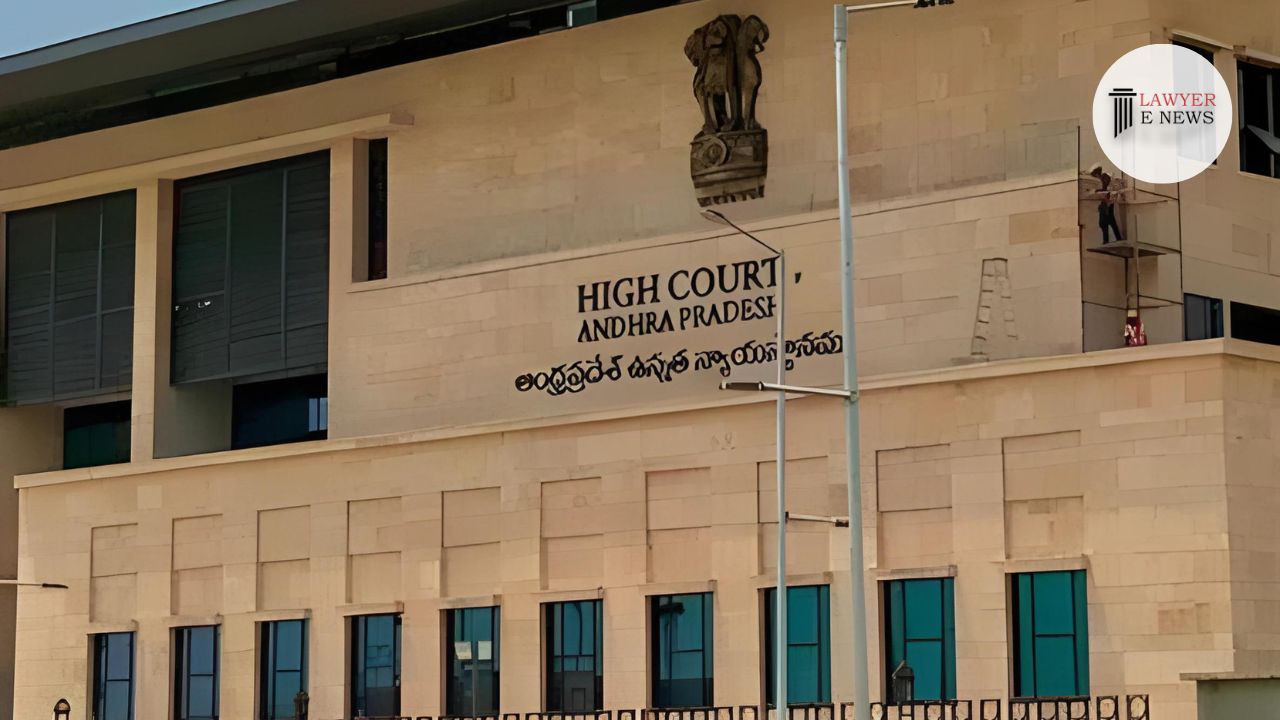-
by Admin
15 February 2026 5:35 AM



Andhra Pradesh High Court, in the case of Botta Lakshmi Pavani vs. The State of Andhra Pradesh & Others, addressed the legality of suspending a bar license under Section 31 of the Andhra Pradesh Excise Act, 1968. The court ruled that the suspension order, which did not specify a duration, violated principles of natural justice and required authorities to pass a final order within three weeks, failing which the suspension would be deemed revoked.
The petitioner, Botta Lakshmi Pavani, was the holder of a Form-2B license to operate the Island Bistro Bar & Restaurant, commonly known as QUBBAA PUB, located in Visakhapatnam. A series of violations, including operating beyond authorized hours and other infractions, led to the Deputy Commissioner of Prohibition and Excise issuing a suspension order dated September 6, 2024. The petitioner challenged this order, arguing that it lacked specified reasons, did not state a clear duration for the suspension, and violated her right to trade under Article 19(1)(g) of the Constitution.
The primary legal questions were:
Whether the indefinite suspension of the license without a specified duration constituted a violation of natural justice.
Whether the petitioner’s right to trade under Article 19(1)(g) was unreasonably restricted by the suspension order.
Whether the authorities failed to provide the petitioner with an opportunity to respond to critical reports filed after her submission of explanations.
The petitioner contended that the order was arbitrary and effectively amounted to a revocation disguised as a suspension. Citing violations of natural justice, she argued that the authorities failed to specify the suspension period, resulting in undue prejudice and financial losses.
The respondents argued that the violations of license conditions were significant, and the suspension was warranted under the Andhra Pradesh Excise Act, 1968. They maintained that the suspension was a temporary measure and due process had been followed.
The court found merit in the petitioner’s argument that a suspension without a specified period creates ambiguity and can be tantamount to a de facto cancellation of the license. Quoting a previous ruling, the court stated, "Suspension without mentioning the period cannot withstand legal scrutiny" (Teja Bar and Restaurant vs. State of Andhra Pradesh, 2024). The court observed that a suspension must be temporary, and failing to define the duration violates principles of natural justice (Para 5).
The petitioner’s claim under Article 19(1)(g) was carefully examined. While recognizing the right to trade as a fundamental right, the court emphasized that the trade in liquor is subject to "reasonable restrictions" due to its potential impact on public order and health. Citing Amar Chandra Chakraborty vs. The Collector of Excise (1972), the court reiterated that liquor trade is inherently subject to stricter regulation than other businesses (Para 13).
The court dismissed the petitioner’s claim that her explanation was disregarded and the report filed post-explanation was not furnished to her. It held that no new adverse material was introduced in the report, and thus, the principles of natural justice were not violated. The authorities had given the petitioner adequate opportunity to respond (Para 21).
The court dismissed the writ petition, upholding the temporary suspension but directing the authorities to pass a final order within three weeks. The final order must comply with the principles of natural justice. If the final order is not issued within the stipulated period, the suspension will be deemed revoked, allowing the petitioner to resume operations.
Date of Decision: September 23, 2024
Botta Lakshmi Pavani vs. The State of Andhra Pradesh & Others
